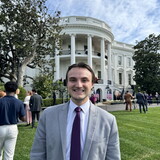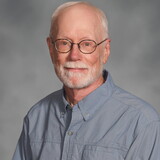First-year students in Gerise Herndon’s English 1 classes likely had some preconceived ideas as to what their lessons would entail.
Writing. Revising. More writing. More revising.
It’s a required course of all first-year students at Nebraska Wesleyan University as they learn to write with more clarity, confidence and conviction.
So imagine the students’ surprise when Herndon told them they would be taking their writing skills to the Lancaster County Youth Services Center — a local detention center — and helping troubled youth discover the benefits of writing.
“I was excited, curious and nervous,” said NWU student Chloe Petit. “We wanted them to like writing, but we couldn’t force them to like it.”
It’s a service project Herndon has tried previously with success. To alleviate students’ initial concerns, she invited youth center staff to her classes to discuss the center’s environment, residents, and expectations. Youth center staff also assured NWU students of their safety.
“Initially I think a few were scared,” said Herndon. “I told them to look at it as a learning opportunity, an opportunity to learn about something they probably don’t know much about.”
Together, students in English 1 as well as those in Brad Tice’s fiction writing classes developed four writing workshops.
During the first workshop, NWU students asked the youth center residents to write a short personal ad to creatively describe themselves. Then they were given bumper stickers and asked to write about the car’s owner. Future workshops challenged residents to write about their dream vacations, their happiest moments, and what they want to do when they leave the detention center.
For junior Mariah Jessen, the writing exercises led to larger conversations with the residents.
“There were some students who never felt completely comfortable with us,” she recalled. “But there was one girl in particular who opened up to me and we had wonderful conversations of why she was there and how she is ready to get out and change.”
Herndon said the project is more than just NWU students sharing their writing skills.
“Many of these kids need role models,” she said of the youth center residents. “Maybe an exercise like this will help them discover something they are good at that they wouldn’t have thought about otherwise.”
At the conclusion of the spring semester, NWU students wrote reflection papers about their experiences.
“I think many of our students were shocked at how much they enjoyed the experience,” said Tice, who incorporated the service project into his class for the first time. “I think students realized that some of the kids are just like anyone else but they’ve been dealt a different hand.”
The experience impacted Jessen so much that she now plans to get involved in a mentoring program with the youth center residents.
Petit said the experience likely impacted her more so than the youth center residents.
“I became a more confident person and teacher, and I grew as a person,” she said. “I realize how lucky I am to be a happy, successful college student.”












